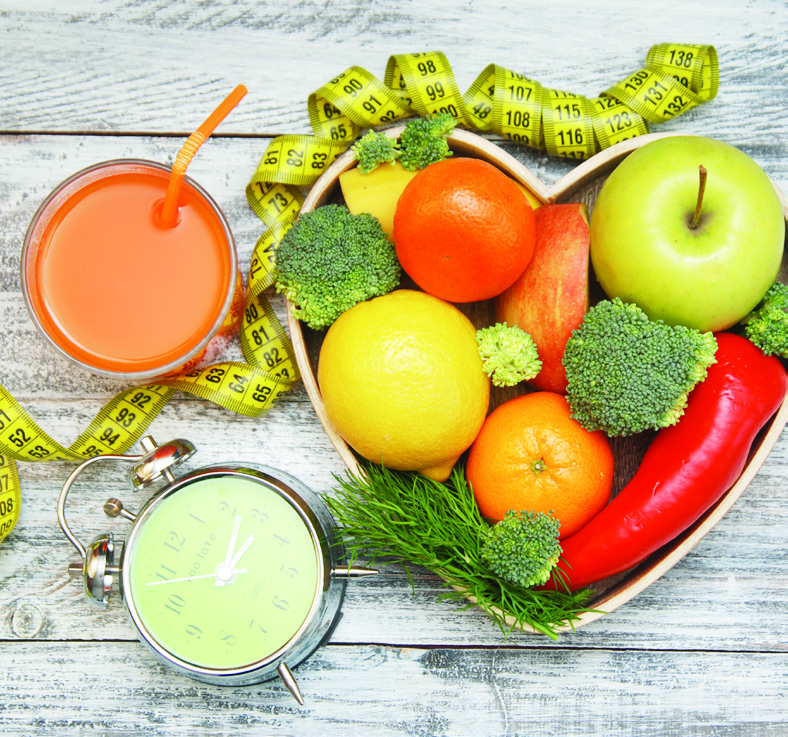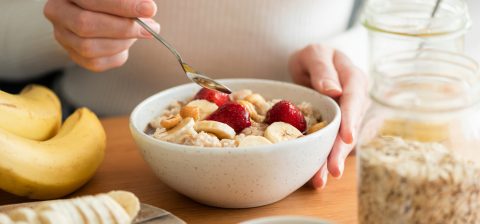Sunday Times Healthy Times
Under Pressure
Raised blood pressure (BP) is one of the key risk factors for cardiovascular (CVD), cerebrovascular and renal diseases, explains Prof Pamela Naidoo, CEO of the Heart and Stroke Foundation South Africa (HSFSA). “Raised BP and hypertension are estimated to contribute to nearly half of all coronary heart disease (CHD) and nearly two-thirds of all stroke events worldwide,” says Naidoo. “South Africans are particularly hard hit, with estimates ranging from one in every three to more than half of adults living with hypertension. Even more worrying is that high blood pressure often goes undiagnosed and is poorly controlled in our country, leading to high levels of entirely preventable deaths from heart disease, kidney disease and strokes.”
The COVID-19 link
Because we’re dealing with such a new virus, we’re unfortunately faced with a great deal of unknowns. What we do know about the disease, says Naidoo, “is that people with underlying medical conditions seem to be more vulnerable, and that several co-morbidities associated with an increased risk of infection and mortality have been and continue to be reported in numerous studies, with hypertension, diabetes and CVD the most prevalent”. Naidoo says hypertension definitely features as a leading co-morbidity. “One study has put the figure at 30 per cent compared to diabetes (19 per cent) and coronary heart disease (8 per cent), and another at 27 per cent, with diabetes at 19 per cent and cardiovascular disease 6 per cent, according to the American Journal of Hypertension (AJH). “Recent research in China shows that about 20 per cent of a sample of 83 COVID-19 patients who died suffered some form of cardiac injury,” she continues, “and while it’s not known whether or not the virus directly caused these cardiac events, many of these patients had a history of hypertension or CVD.
“To date, in the majority of South African COVID-19-related deaths, patients had pre-existing co-morbidities, with data in the Western Cape showing that hypertension is a key risk factor in increased mortality from the virus. Which is why, given the risk for medical complications if you are hypertensive and test positive, it’s imperative to continue taking your blood-pressure medication.”
The importance of taking control
Although the AJH states that it’s still unclear whether or not uncontrolled blood pressure is a risk factor for developing COVID-19, or whether controlled blood pressure if you suffer from hypertension is or is not less of a risk factor, it’s important to remember that uncontrolled hypertension leads to poor health outcomes and contributes to the burden of disease. That’s why the message from the HSFSA and the international medical fraternity remains quite clear: take your meds and take control.
“Given that hypertension is treatable, it’s important to know whether or not you are at risk, which is why you need to get tested,” says Naidoo. “Having regular BP checks if you are over the age of 45 is essential, especially if you are obese or suffer from other health conditions. The good news is that hypertension can be managed and controlled by taking the appropriate medication, and this, together with living a healthy lifestyle, will go a long way in helping you to maintain your physical wellbeing during this ongoing pandemic.”
Making healthy lockdown choices
A critical step in preventing and treating high blood pressure is adopting a healthy lifestyle, says associate professor Richard van Zyl-Smit, pulmonologist and the head of Smoking Cessation Services at Groote Schuur Hospital and the UCT Lung Institute. “Now more than ever, while we’re living with such uncertainty due to COVID-19, making healthy choices will not only help to maintain optimal BP levels, but will also strengthen your immune system, which plays a vital role in your body’s susceptibility to respiratory infections and its ability to fight disease.”
Van Zyl-Smit offers the following guidelines:
- Take your medication. Continue to manage all existing health conditions by taking medication as prescribed, following your health practitioner’s lifestyle advice, and seeking treatment when needed.
- Quit smoking. Smoking is strongly associated with increased blood pressure and heart disease. Even if you smoke fewer than five cigarettes a day, you are at risk of early heart disease and stroke. However, the increased blood pressure caused by tobacco use resolves quickly when you stop smoking, and long-term heart health improves over time.
- Limit alcohol. Now that it’s available, don’t be tempted to over indulge out of sheer boredom or frustration. Alcohol abuse and binge drinking are known risk factors for heart disease and stroke, and can equally affect immunity, particularly relating to lung health.
- Make healthy food choices. While food procurement may be more challenging right now, eating as healthily as possible is crucial to maintaining an optimal immune system. Try to include fruit, vegetables and legumes, unrefined and unprocessed foods, lean chicken and meat, low-fat or fat-free dairy, and fatty fish in your daily diet.
- Look after your gut; It’s critical in maintaining your immune system. Plenty of whole grains and probiotics such as yoghurt can help to improve the balance of gut bacteria.
- Be vigilant about food hygiene. Rinse all raw foods thoroughly, and always wash your hands during food preparation and before eating.
- Reduce your salt intake. Salt is a recognised contributor to hypertension. The World Health Organization recommends limiting salt to no more than 5 grams (one level teaspoon) per person per day, yet South Africans consume an average of 8.5 grams.
- Keep moving. Staying active during these challenging times will help to maintain both your physical and mental health. Moderate physical activity not only reduces the risk of hypertension and heart disease, but can also play a vital role in maintaining an optimal immune response. Go for a walk, cycle or run outside, or take a free online class.
- Get a goodnight’s sleep. It’s essential for managing stress. Sleep deprivation can have a major impact on your health and can increase your risk of developing chronic health conditions, such as diabetes, obesity and heart disease.
“With the number of South African COVID-19 cases expected to continue rising exponentially over the next few months, measures like these will go a long way in helping you to navigate your way through this ever-changing world we’re now all living in,” concludes Naidoo. “Not only will they do good things for your blood pressure, your heart, your mind and your overall health, but they’ll also give you a much-needed sense of being in control.”
Fast facts:
- High blood pressure or hypertension is defined as blood pressure greater than 140/90. Less than 120/80 is optimal.
- Hypertension is the leading preventable risk factor for overall mortality, accounting for almost 13 per cent of deaths globally.
- While the risk of high blood pressure increases with age, pregnant women are also at risk.
- If South Africans reduced their daily salt in take by as little as 0.85 grams per day, this could result in 7 400 fewer deaths from heart diseases and strokes, and 4 300 fewer non-lethal strokes each year.






 Sign-up and receive the Business Media MAGS newsletter OR SA Mining newsletter straight to your inbox.
Sign-up and receive the Business Media MAGS newsletter OR SA Mining newsletter straight to your inbox.